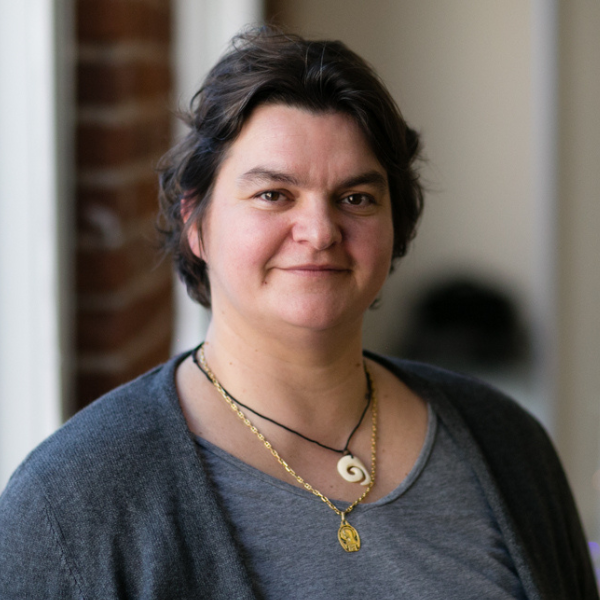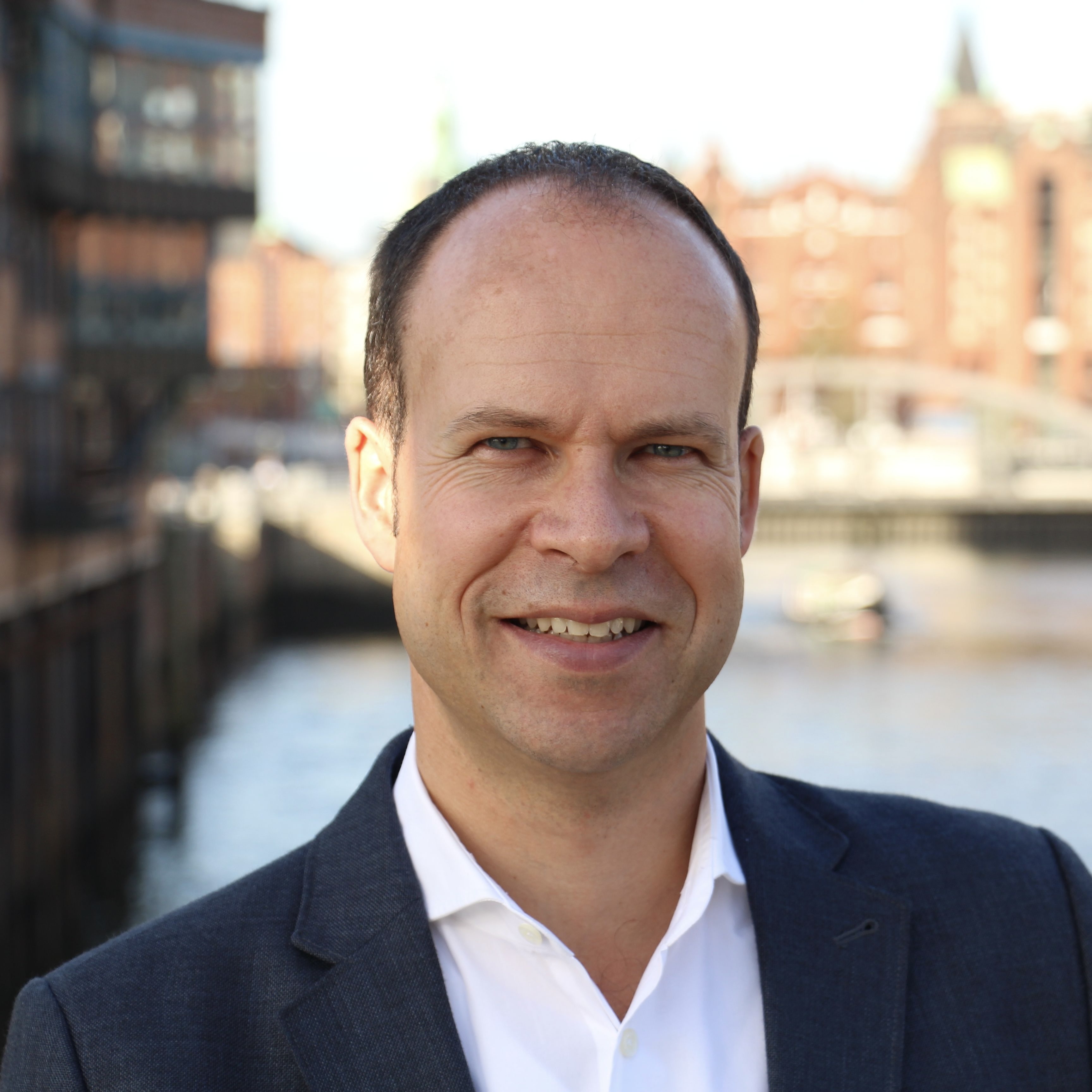If you find information about EMC and keep coming back to it, asking yourself over and over whether this is the programme for you, then it is.
Delphine Menard

Can you tell us a little bit about your professional and personal background?
I am French, and I have been living in Germany for 17 years. I went to school in the US, in France and in Austria. I studied Political Sciences in France (Sciences Po Bordeaux) and never became a politician, but my very varied career had me navigating all kinds of internal politics.
I started working in the wine business in Southern France, moved on to Marketing and Event Management in Paris, became a Trainer in Intercultural Communication and designed Websites and Communication strategies in Frankfurt. I then moved on to non-profit as a grant-maker for a global organisation, with a focus on strategy and organisational development, and finally made it to Global HR, which feels like it's the thing I have been made for, with its focus on people and systems, the two things I loved in all my other jobs.
I have been volunteering for Wikimedia for almost 20 years, in all kinds of roles. Whatever I do, as a volunteer or a professional, I have always been in it for the people.
What is a fun fact or something unexpected about you?
Since about 1995, I have been using the nickname/username "notafish" on the internet, because my name Delphine means dolphin in many languages and people often ask "Delphine, like the fish?" when I say my name. However, the dolphin is a mammal, not a fish!
What made you decide to pursue the EMC at INSEAD?
When looking back at my work trajectory, it became clear that no matter the job I was actually doing, there was in it a great component about change and change management.
When I started thinking about my next career step, I looked for change management programmes and found EMC. The more I looked at it the more it appealed to me. The systems-psychodynamics approach and the three levels (self, the organisation, the world) of study sounded interesting.
I was also looking for an international programme with an international student body and the INSEAD network was definitely appealing in that regard.
What are your impressions of the classroom atmosphere, the content, professors and your classmates so far?
Adult learning has a really fascinating touch to it. The classroom atmosphere, the lectures remind me of my student years but the focus and interest of all my classmates is so much more motivating than anything I've experienced before.
The content is very tough, not so much on the "knowledge" side, although some concepts are complex and not easy to grasp, but also because it warrants one's complete buy-in.
I don't think you can do EMC just in passing, it is going to be a real personal investment, with difficult times and extremely rewarding discoveries.
Please share some examples of new insights / tools that you have gained through the EMC and how you’ve been able to implement them in your professional life?
It is hard to pick one because they are all interconnected. But two modules in, I would say that the theory of Defense Mechanisms, which we deploy when things don't go the way we expect or want, Core Conflictual Relationship Theme (CCRT), a model designed to understand one's behaviour in relationships and Attachment Styles, which explain how we relate to the world by looking at our childhood ties, have been the ones that have most helped me make sense of the world around me so far.
Lastly, what advice do you have for people out there who may be currently reading about the programme or considering whether this is the right programme for them?
If you find information about EMC and keep coming back to it, asking yourself over and over whether this is the programme for you, then it is.
EMC is not just "about" change, it is about understanding yourself and your outlook on the world to be a better instrument for change, in all parts of life.
Picture credit: © Myleen Hollero CC-BY-SA




